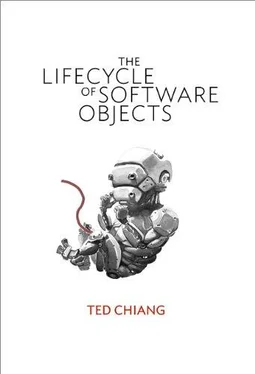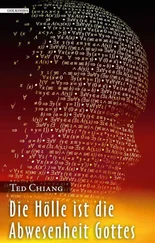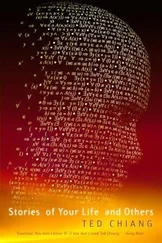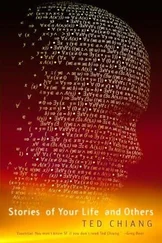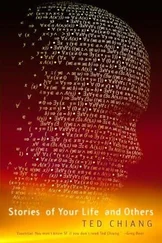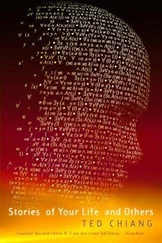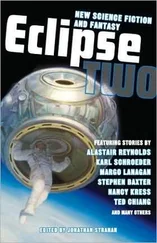“See the blocks, Jax? What shape is the blue one?”
“Tringle,” says Jax.
“Good. What shape is the red one?”
“Squir.”
“Good. What shape is the green one?”
“Circle.”
“Good job, Jax.” Ana gives him a food pellet, which he devours with enthusiasm.
“Jax smirt,” says Jax.
“Lolly smirt too,” Lolly volunteers.
Ana smiles and rubs them on the backs of their heads. “Yes, you’re both very smart.”
“Both smirt,” says Jax.
“That’s what I like to see,” says Mahesh.
The release candidates are the final distillation of countless trials, the cream of the crop in terms of teachability. It’s partly been a search for intelligence, but just as much it’s been a search for temperament, the personality that won’t frustrate customers. One element of that is the ability to play well with others. The development team has tried to reduce hierarchical behavior in the digients–Blue Gamma wants to sell a pet that owners won’t need to continually reassert their dominance over–but that doesn’t mean competition never arises. The digients love attention, and if one notices that Ana’s giving praise to another, it tries to get in on the action. Most of the time this is fine, but whenever a digient seemed particularly resentful of its peers or of Ana, she would flag it and its specific genome would be excluded from the next generation. The process has felt a bit like breeding dogs, but more like working in an enormous test kitchen, baking endless batches of brownies and sampling each one’s toothsomeness to find the perfect recipe.
The current instances of the release candidates will be kept as mascots, and copies will be available for purchase, but the expectation is that most people will buy younger digients, when they’re still prelinguistic. Teaching your digient how to talk is half the fun; the mascots primarily serve as examples of the kind of results you can expect. Selling prelinguistic digients also allows them to be sold in non-English-speaking markets, even though Blue Gamma only had enough staff to raise mascots in English.
Ana sends Jax back to the playground, and calls over a panda-bear digient named Marco. She’s about to start testing his shape recognition when Mahesh points to one corner of her video screen. “Hey, look at that.” A couple of digients are on the hill next to the playground, rolling down the slope.
“Hey, cool,” she says. “I’ve never seen them do that before.” She walks her avatar over to the hill, with Jax and Marco following and then joining the rest of the digients. The first time Jax tries it, he stops rolling almost immediately, but after a little practice he’s able to make it all the way down the hill. He does that a few times and then runs back to Ana.
“Ana watch?” asks Jax. “Jax spinning lying din!”
“Yes, I saw you! You were rolling down the hill!”
“Rilling din hill!”
“You did great.” She rubs him on the back of his head again. Jax runs back and resumes rolling. Lolly has also taken to the new activity with enthusiasm. Once she’s reached the bottom of the hill, she keeps rolling across the flat ground, and then hits one of the playground bridges.
“Eeh, eeh, eeh,” Lolly says. “Fuck.” Suddenly everyone’s attention is on Lolly. “Where did she learn that?” asks Mahesh.
Ana toggles her microphone off, and walks her avatar over to comfort Lolly. “I don’t know,” she says. “She must have overheard it.”
“Well, we can’t sell a digient that says ‘fuck.’”
“I’m on it,” says Robyn. In a separate window on her own screen, she brings up the archives of their training sessions and runs a search on the audio track. “Looks like that’s the first time any of the digients has said it. As for when any of us has said it…” The three of them watch as search results accumulate in the window; it appears that the culprit is Stefan, one of the trainers from Blue Gamma’s Australian office. Blue Gamma has people working in Australia and England to train the digients when the West Coast office is closed; the digients don’t need to sleep–or, more precisely, the integration processing that’s their analog to sleep can be run at high speed–so they can be trained twenty-four hours a day.
They review the video footage of every time Stefan said the word ‘fuck’ during a training session. The most dramatic outburst is from three days ago; it’s hard to be sure from watching his Data Earth avatar, but it sounds like he banged his knee against his desk. There are previous examples going weeks back, but none as loud or prolonged.
“What do you want us to do?” asks Robyn.
The tradeoff is apparent. This close to the release date, they don’t have time to repeat weeks of training; should they gamble that the earlier utterances didn’t make an impression on the digients? Mahesh thinks for a moment, and then decides. “Okay. Roll them back three days and pick up from there.”
“All of them?” says Ana. “Not just Lolly?”
“We can’t take the chance; roll them all back. And I want a keyword flagger running on every training session from now on. The next time any of you curses, roll all of them back to the last checkpoint.”
So the digients lose three days of experience. Including the first time they rolled down a hill.
Blue Gamma’s digients are a hit. Within the first year of release, a hundred thousand customers buy them and–more importantly–keep them running. Blue Gamma is gambling on a “razor and blades” business model, because just selling the digients wouldn’t recoup the development costs; instead, the company charges customers each time they make digient food, and thus maintains a revenue stream for as long as the digients remain entertaining to their owners. And so far, the customers are finding them enormously entertaining, keeping them running all day long. It’s common for customers to run the integration processing slowly, so the digients sleep the entire night, but some run it at high speed, so their digients are awake almost all the time; they share their digients in cooperation with people in other time zones, enabling them to mature more rapidly. Scores of digient playgrounds and daycare centers appear across Data Earth’s social continents, and public-events calendars become dotted with group playdates, training classes, and talent contests. Some owners even bring their digients to the racing zones and let them ride in their vehicles. The virtual world acts as a global village for raising the digients, a social fabric into which a new category of pet is woven.
Half of the digients that Blue Gamma sells are one-offs, having a genome that’s randomly generated while remaining within the parameters chosen during the breeding process. The other half are copies of the mascots, but the company takes pains to remind buyers that each copy will develop differently depending on its environment. As an illustration of this, Blue Gamma’s sales team points to Marco and Polo, two of the company’s mascots. Both are instances of the exact same genome and both have panda-bear avatars, but they have distinctly different personalities. Marco was two years old when Polo was instantiated, and Polo latched on to him as a kind of older brother; the two are inseparable now, but Marco is more outgoing while Polo is more cautious, and no one expects that Polo will turn into Marco any time soon.
Blue Gamma’s mascots are the oldest Neuroblast digients running, and management originally hoped they would provide the test team with a preview of digient behavior before customers encountered it. In practice, it hasn’t worked out that way; there’s no way to predict how digients raised in a thousand different settings will turn out. In a very real sense, each digient owner is exploring new territory, and they turn to each other for help. Online forums for digient owners spring up, filled with anecdotes and discussion, advice sought and given.
Читать дальше
